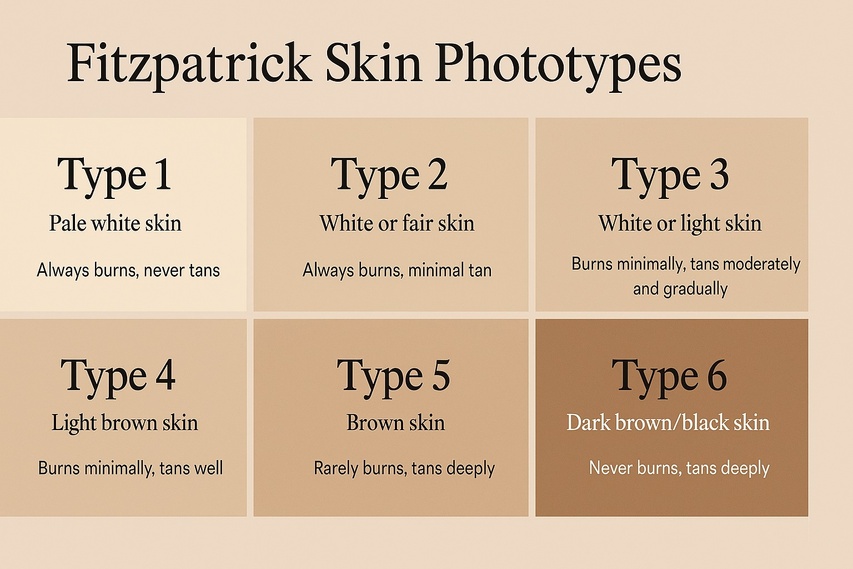Best sunscreen for acne-prone skin

Key Points
- Oil-free SPF 30 chemical sunscreens are ideal for acne-prone skin, offering strong UV protection without clogging pores.
- Look for non-comedogenic, water-resistant sunscreens with calming ingredients like niacinamide, aloe vera, or green tea.
- Avoid physical blockers and comedogenic compounds like oxybenzone or nano zinc, which may worsen acne and irritation.
Choosing the Right Sunscreen for Acne-Prone Skin
Acne-prone skin requires special care, especially when selecting sunscreen. The wrong sunscreen can clog pores and trigger breakouts, but the right one not only protects against harmful UV rays but also promotes healthier skin. Here's what you need to know about choosing the best sunscreen for acne-prone skin.
The Importance of Sunscreen for Acne-Prone Skin
A recent study emphasized the adverse effects of sun exposure on acne-prone skin. While some may see a temporary improvement in the summer, many experience worsened conditions due to increased inflammation and clogged pores from sun damage. Moreover, certain acne treatments make skin more sensitive to UV rays, making daily photoprotection essential. Proper sunscreen not only shields against UV damage but also hydrates, regulates sebum, and reduces inflammation.
What to Look For in Sunscreens for Acne-Prone Skin
- Oil-Free Formulas: Always choose sunscreens labeled "oil-free" to avoid clogging pores and causing breakouts.
- SPF 30 Is Enough: SPF 30 provides 97% protection, which is nearly as effective as SPF 50 (98%) without the increased risk of irritation or sensitivity from additional chemicals.
- High-Quality Chemical Sunscreens: Opt for sunscreens with FDA-approved ingredients like Octinoxate, Octisalate, and Avobenzone in a lightweight, oil-free base.
- Avoid Comedogenic Ingredients: Stay clear of products containing oxybenzone, phthalates, or nano zinc and titanium dioxide, as these can irritate the skin or clog pores.
- Water Resistance: Choose water-resistant sunscreens to ensure effective protection during sweating, swimming, or humid conditions.
Benefits of Using the Right Sunscreen for Acne-Prone Skin
- Prevents Acne Flares: Non-comedogenic formulations reduce the risk of clogged pores and breakouts.
- Helps Fade Dark Spots: Sunscreens combined with ingredients like niacinamide or Vitamin C can help prevent and lighten post-acne pigmentation.
- Protects Skin Barrier: Hydrating and oil-free formulations maintain the skin's natural moisture balance while shielding against UV damage.

Sunscreen Types: Chemical vs. Physical
- Chemical Sunscreens: These absorb UV rays and dry invisibly on the skin. They are ideal for acne-prone individuals due to their lightweight, non-greasy feel.
- Physical Sunscreens: These contain zinc oxide or titanium dioxide and create a barrier on the skin to deflect UV rays. However, they tend to be thicker and may clog pores, making them less suitable for acne-prone skin.
Additional Tips for Acne-Prone Skin
- Use With Moisturizer: Pair an oil-free sunscreen with a niacinamide-based moisturizer to protect the skin barrier and reduce irritation.
- Avoid Heavy Sprays: Stick to creams or lotions for better protection and less irritation.
- Incorporate Plant-Based Ingredients: Look for sunscreens with aloe vera, green tea extract, and licorice extract for added anti-inflammatory and calming benefits.
Conclusion
Choosing the right sunscreen is essential for protecting acne-prone skin without aggravating it. Opt for oil-free, SPF 30, water-resistant chemical sunscreens free of pore-clogging ingredients. Incorporate sunscreens with additional plant-based benefits to soothe and enhance your skin's health. With the right product, you can enjoy sun protection without compromising your skin's clarity or beauty.
Shop:
EltaMD UV Daily Tinted Sunscreen with Zinc Oxide, SPF 40
Paula's Choice CLEAR Ultra-Light Hydrating Oil Free Moisturizer SPF 30
References:
- Comedogenicity of sunscreens. Experimental observations in rabbits. Arch Dermatol. 1982 Jun;118(6):417-9.
- A Prospective Study Examining Trigger Factors and Hormonal Abnormalities in Adult Female Acne." Indian Dermatology Online Journal vol. 11,4 544-550. 13 Jul. 2020,
- Sun Exposure, a relevant exposome factor in acne patients, and how photoprotection can improve outcomes. Piquero‐Casals J, et al. Journal of Cosmetic Dermatology. 2023.
To find the right acne treatments for your unique skin, take the free skin assessment by clicking here.



